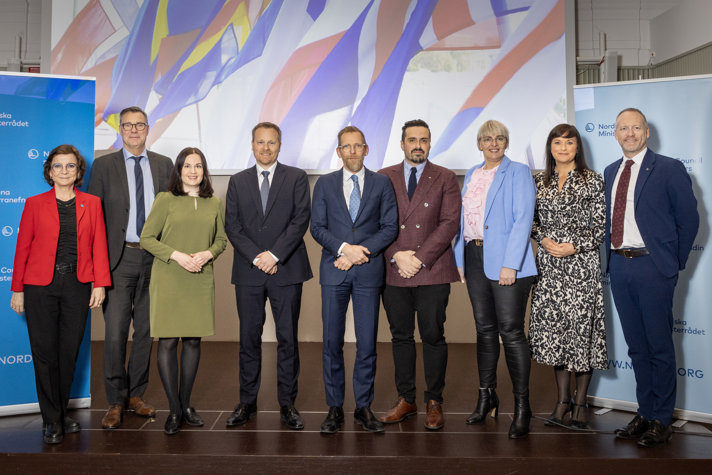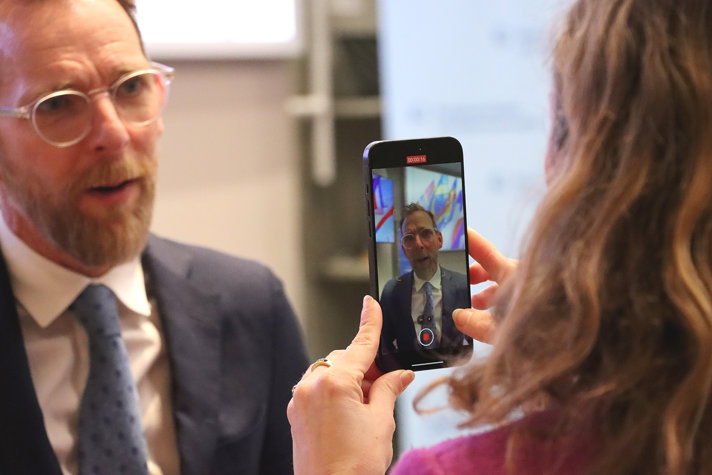Screens and social media in focus when Nordic Council of Ministers for Health and Social Affairs met in Stockholm
Published
Screen time’s impact on the health of children and young people was on the agenda when ministers from across the Nordic region met in Stockholm on 17 April. Minister for Social Affairs Jakob Forssmed hosted the meeting, which was under the auspices of the Swedish Presidency of the Nordic Council of Ministers. The Council of Ministers also discussed how Nordic cooperation against antimicrobial resistance can be strengthened.
“Screen time takes away from other activities that are crucial for children’s development and health, such as exercise, reading, sleeping and socialising. We need to discuss the consequences this has and what responsibility the major social media companies have for this widespread health issue. Together, we in the Nordic region can put more pressure on companies to act than we can individually,” said Mr Forssmed.
A majority of children and young people in Sweden spend more than three hours a day in front of a screen, with some groups spending up to 5–6 hours. The ministers discussed the impact of excessive screen time on health and well-being, as well as what joint initiatives are in place in the Nordic arena.
The Nordic ministers are deeply concerned about the negative effects that can result from increased screen time and digital media and which can worsen the health and well-being of children and young people. Together, they want to increase pressure on the major social media companies to take greater responsibility and introduce measures to reduce the negative effects of extensive screen time. The meeting also featured Sissela Nutley, a researcher at Karolinska Institute, as a guest speaker.
Thematic discussion on antimicrobial resistance
The Council of Ministers also discussed how Nordic cooperation against antimicrobial resistance (AMR) can be strengthened. This includes how to ensure better and more sustainable access to antibiotics. The discussion was led by Malin Grape, Sweden’s AMR Ambassador for work against antimicrobial resistance.
During its Presidency of the Nordic Council of Ministers, Sweden wants to deepen cooperation between the countries to ensure better and more sustainable access to antibiotics. During the year, Sweden also wants to update and adopt the cross-sectoral AMR declaration that was adopted by the Council in 2015.
The Nordic governments’ cooperation on health and social affairs is led by the Nordic Council of Ministers for Health and Social Affairs, which meets at least once a year.
Attending the meeting on 17 April were health and social ministers from Finland, Denmark, Norway, Iceland, the Faroe Islands and Åland, together with the Nordic Council of Ministers’ Secretary General and Secretariat.
Development process for new cooperation programme in full swing
The cooperation programme for health and social affairs describes the political priorities and goals that the Council will work with. The ministers discussed the forthcoming cooperation programme for 2025–2030 during the meeting on 17 April. The design of a new cooperation programme also involves the Nordic Council, civil society and other relevant actors, and is based upon the Nordic Council of Ministers’ remit to help realise the vision of making the Nordic region the most sustainable and integrated region in the world by 2030. All of the Nordic Council of Ministers’ ministerial councils are working towards attaining this vision based on the three strategic priorities: a green Nordic region, a competitive Nordic region and a socially sustainable Nordic region.



 X
X